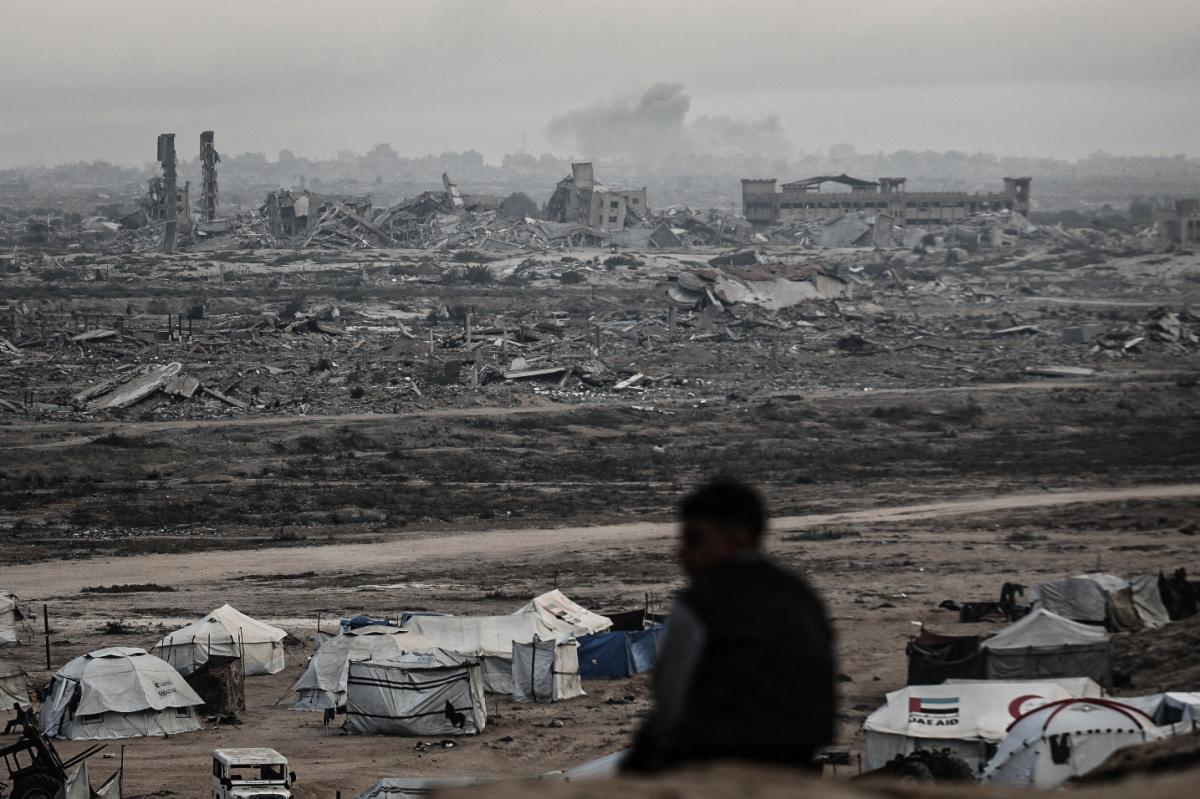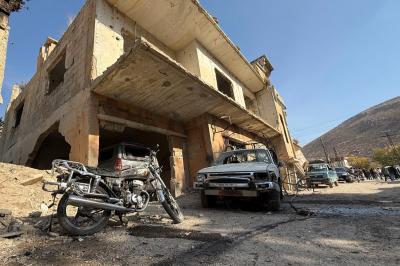As dawn broke on Thursday, news spread across the globe that Egyptian, Qatari, and Turkish mediators — under U.S. sponsorship — had reached an agreement between Israel and “Hamas” to implement the first clause of U.S. President Donald Trump’s Middle East peace plan. The deal aims to end the war in Gaza and secure the release of Israeli hostages in exchange for Israel freeing several Palestinian prisoners serving life sentences.
The announcement, echoing from the Egyptian resort city of Sharm el-Sheikh, carried a wave of cautious optimism across the region — including Lebanon, whose people have for years lived between the hammer of the “Axis of Resistance” and the anvil of “Unity of Fronts.” Sign of the U.S. commitment this time: President Trump’s intention to personally travel to the Middle East for the signing ceremony.
Two years ago, Hamas launched its operation dubbed the “Al-Aqsa Flood,” followed by “Hezbollah’s” entry into what it called the “Support War.” From there, the idea of the “Unity of Fronts” gradually took shape — an Iranian-sponsored military umbrella linking Gaza, Lebanon, Yemen, Iraq, and even Iran itself.
But what began as a “flood” soon revealed itself as an internal earthquake shaking the very foundations of Iran’s axis. The war left vast swathes of Gaza and southern Lebanon in ruins, decimated most of the first, second, and third-tier leadership of both Hamas and “Hezbollah,” and culminated in the collapse of Bashar al-Assad’s regime in Syria.
From Slogans to Strategic Exposure
What began as a sweeping slogan — a “new phase of confrontation” — quickly disintegrated on the ground. Coordination among the various components of the axis proved fragile and inconsistent. The simultaneous wars in Lebanon, Yemen, Gaza, and Iran failed to produce the intended “balance of deterrence.” Instead, they exposed each front’s vulnerabilities, revealing that each fought its own battle — not that of a unified camp.
Israel, seizing the moment, expanded its campaign from Gaza to southern Lebanon and later to targets deep inside Yemen and Iran in what it called “surgical strikes.” Meanwhile, the rhetoric of the “resistance” camp drowned in slogans, as if words could substitute for achievements — or rebuild what the artillery had destroyed.
A Slip of the Tongue that Shattered a Narrative
If weapons test power, words test legitimacy. Nothing illustrated that truth more starkly than the fateful “slip of the tongue” by Hamas’ military spokesman, Abu Obaida, who declared in the early days of the war that the movement would execute Israeli hostages if attacks on Gaza did not stop.
That single sentence, stripped of all rhetoric, demolished decades of moral posturing. Overnight, the “fighter” became a captor of children and civilians; the “flood” became a documented moral collapse. The world saw — in sound and image — the line where “resistance” can gave way to atrocity.
The field proved that “Unity of Fronts” was unity in slogans, not in decision-making. Each front fought for its own survival: Hamas to preserve its rule in Gaza, “Hezbollah” to defend its legitimacy through arms, Yemen’s Houthis to gain international recognition, and Iran to manage all, while bleeding across multiple fronts.
In the end, no political gain justified the staggering human and material losses. To acknowledge defeat, in this context, is not treason but wisdom. Denying it in the name of “resistance” is a true disgrace.
Against this backdrop, the Trump administration’s new peace initiative seeks a long-term cease-fire in Gaza, partial Israeli withdrawal, and international-Arab oversight of the enclave’s administration.
This explains the arrival of U.S. envoys Steve Witkoff and Jared Kushner in Sharm el-Sheikh on Wednesday to join talks involving officials from Washington, Tel Aviv, Cairo, Doha, and Ankara. The discussions aim to implement security arrangements that would prevent Hamas from re-emerging as an armed actor.
Lebanon and the Art of smoothing the corners
Whether the Sharm el-Sheikh agreement endures or collapses like its predecessors remains uncertain. Yet one truth stands firm: the region can no longer bear the burden of hollow slogans or ideological intoxication. The “Unity of Fronts” collapsed morally before it did militarily — along with the notion that “blood alone builds glory.”
For Lebanon, this is a lesson written in fire and ash: wars that consume nations cannot be called “fronts of resistance.” They are retreats from humanity itself. True peace, the kind that redefines nations, begins with admitting moral defeat — because only then can the military one find meaning.
Please post your comments on:
[email protected]
 Politics
Politics













